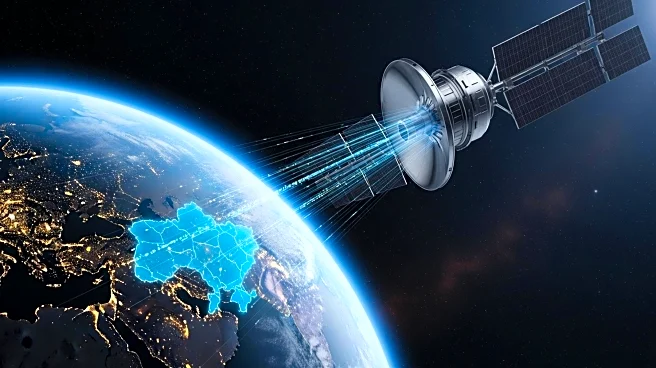What's Happening?
The Kremlin is ramping up its informational efforts to deter Western support for Ukraine and undermine European participation in the peace process. This includes accusations against European states of prolonging the war, nuclear threats, and claims of inevitable Russian victory. Russian milbloggers have criticized the Russian Ministry of Defense for exaggerating battlefield successes, highlighting discrepancies in reported territorial gains. The Kremlin's intensified information campaign comes as its territorial advances remain slow and costly, with significant personnel losses reported by the Ukrainian General Staff.
Why It's Important?
The Kremlin's information campaign aims to influence Western decision-making and weaken support for Ukraine. By portraying Russian victory as inevitable and accusing European states of prolonging the conflict, the Kremlin seeks to create divisions within the Western alliance. The criticism from Russian milbloggers indicates internal dissatisfaction with the Ministry of Defense's reporting, which could impact morale and credibility. The high personnel losses and slow territorial gains highlight the challenges Russia faces in sustaining its offensive, which could affect its long-term strategic objectives in Ukraine.
What's Next?
The Kremlin is likely to continue its information campaign to sway public opinion and political decisions in the West. Western governments may respond by reinforcing their support for Ukraine and countering Russian narratives. The internal criticism within Russia could lead to changes in military leadership or strategy if dissatisfaction grows. The ongoing conflict and information warfare will continue to shape the geopolitical landscape, with potential implications for international relations and security policies.











